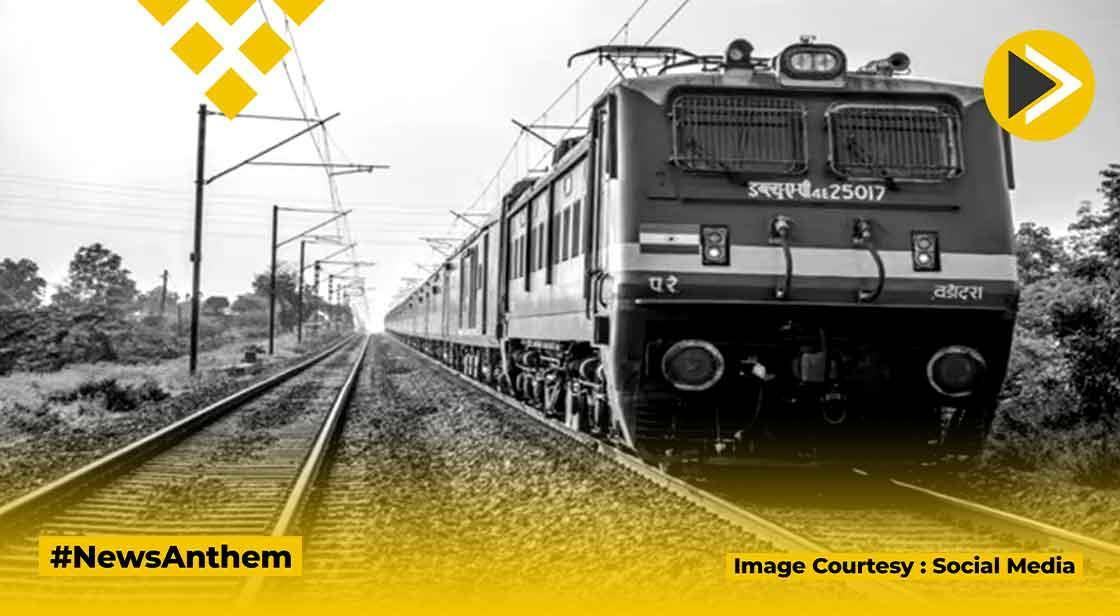Indian Railways Embraces Digital Transformation with Two Major Cybersecurity Initiatives

News Synopsis
The Ministry of Railways’ IT division, led by the Centre for Railway Information Systems (CRIS), has unveiled two major technology-driven initiatives aimed at enhancing the digital security and operational intelligence of Indian Railways.
Indian Railways Bolsters Cybersecurity Infrastructure
“The implementation of IRSOC will significantly enhance the cybersecurity monitoring capabilities of Indian Railways, leading to a substantial reduction in Mean Time to Detect and Mean Time to Respond through the deployment of advanced security solutions such as Security Information and Event Management (SIEM), Security Orchestration Automation and Response (SOAR), Endpoint Detection and Response (EDR), and Network Detection and Response (NDR),” the report stated.
As part of its 40th Foundation Day celebrations, CRIS introduced:
-
Indian Railways Security Operations Centre (IRSOC)
-
An AI/ML-powered enterprise-wide analytics framework
What is IRSOC and How Will It Help?
The IRSOC (Indian Railways Security Operations Centre) is designed to provide real-time threat detection and rapid response capabilities.
“The implementation of IRSOC will enhance the cybersecurity monitoring capabilities of Indian Railways. It will lead to a major reduction in Mean Time to Detect and Mean Time to Respond through the deployment of advanced security solutions.”
The integrated platform will employ:
-
SIEM (Security Information and Event Management)
-
SOAR (Security Orchestration Automation and Response)
-
EDR (Endpoint Detection and Response)
-
NDR (Network Detection and Response)
These tools will together build a multi-layered defense mechanism to protect the vast digital infrastructure of Indian Railways.
Unified AI-Driven Analytics Framework to Drive Smart Governance
Intelligent Operations, Safer Railways
The newly launched analytics framework will unify disparate data sources across departments into a single AI/ML-enabled decision-making system.
“The analytics framework will function by unifying data from various applications into a single Artificial Intelligence/Machine Learning (AI/ML)-enabled decision support system.”
Key impact areas include:
-
Operational efficiency
-
Asset management
-
Passenger safety
-
Inventory optimization
-
Revenue growth from freight and passengers
“Some of the areas where Indian Railways is looking to implement this decision support system include the growth of freight and passenger revenue, increasing market share, and improving profitability.”
Railways Embraces Predictive Governance
CRIS’s long-term goal is to evolve beyond traditional dashboards and adopt a predictive governance model.
“What we are building is more than just a dashboard; it is a predictive governance model.”
This initiative reflects the larger data revolution within Indian Railways.
“Railways are no longer steel tracks and locomotives; they are now a complex mesh of data, passengers, sensors and machines.”
The model is expected to serve as a blueprint for other public infrastructure sectors, showcasing how technology can modernize legacy systems.
Experts Highlight the Importance of Data Integrity and Ethical AI
While the initiatives are promising, industry analysts have flagged a few concerns and necessary precautions.
“Industrial Analysts have warned that the success of this initiative depends on data integrity, ethical AI employment. They stress the need for continuous training of staff and real-time policy adaptation.”
Ensuring clean data, regular upskilling of staff, and adaptive policies will be essential for the sustainable success of this digital transformation.
Conclusion
The Indian Railways, through its IT arm CRIS, is rapidly modernizing its digital ecosystem by launching two major initiatives: IRSOC for cybersecurity and an enterprise-wide AI/ML analytics framework.
These systems are set to significantly improve the Railways' ability to detect and respond to cyber threats while enhancing decision-making through unified data intelligence. The use of technologies such as SIEM, SOAR, EDR, and NDR under IRSOC is expected to dramatically reduce incident response times.
Meanwhile, the AI-powered analytics platform aims to boost operational efficiency, increase revenue, and improve asset performance across the network. CRIS’s predictive governance approach could become a benchmark for other public infrastructure sectors in India.
However, the successful implementation of these initiatives will depend heavily on maintaining data integrity, using AI ethically, and ensuring that personnel are continually trained to adapt to technological changes. This digital transformation marks a critical step toward building a smarter, safer, and more efficient Indian Railways.
You May Like









